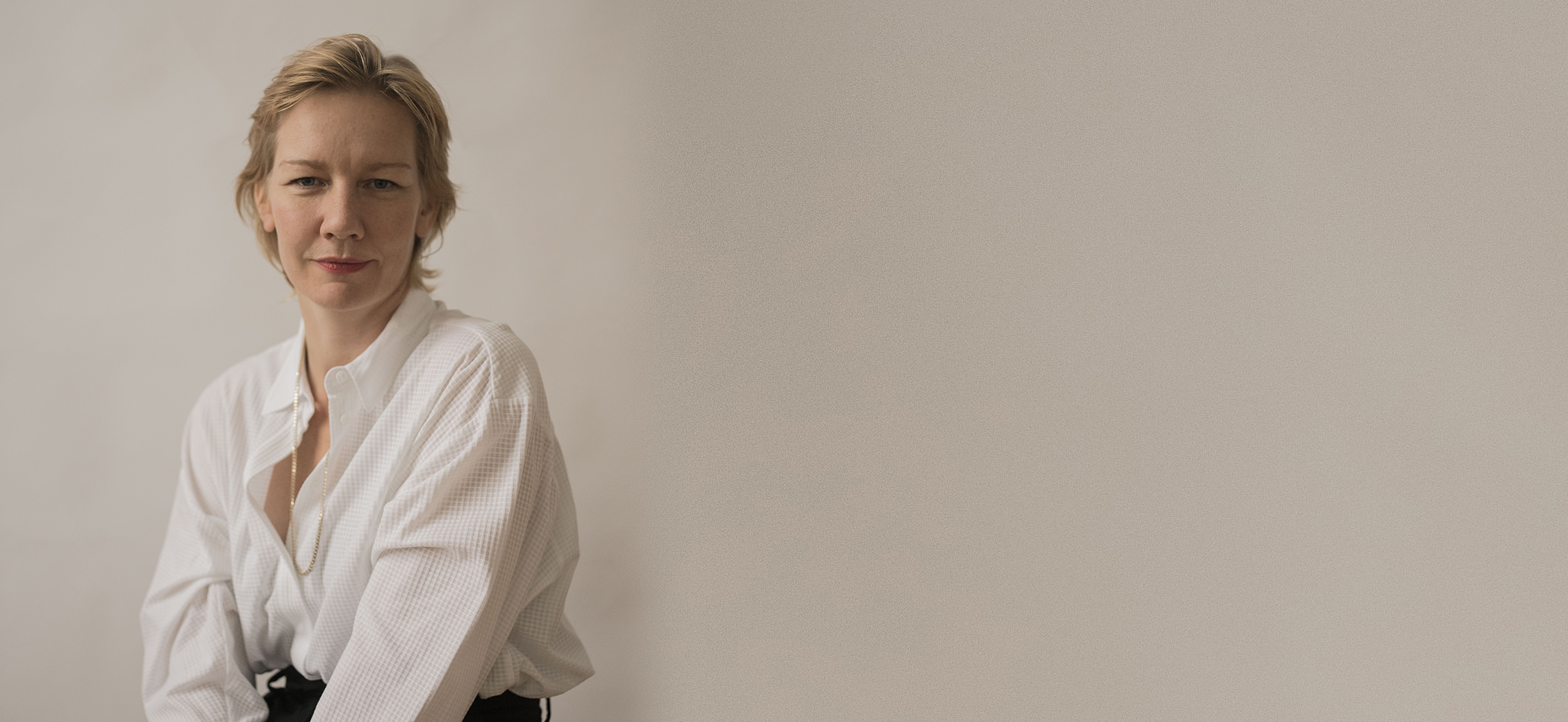A PORTRAIT OF ACTOR SANDRA HÜLLER
Sandra Hüller © Kirsten BeckenIn May, Sandra Hüller was crowned the “Queen of Cannes” by some German media – no doubt an inevitability when someone has the honour of playing two leading roles in the competition there. She has little time for such attributions herself, and equally, she does not care about accolades very much. But the fact that both of her new works were awarded the most important prizes in Cannes – ANATOMY OF A FALL with the Palme d’Or, and THE ZONE OF INTEREST with the Grand Prix du Jury – was rather special, the 45-year-old tells me on the phone.
“The fact that the award ceremony had this outcome not only makes me happy because I think both films are really exceptionally good,” she sums up. “I also liked the way that in both cases, the films were given awards per se – in other words, as collaborative works. Had I had been standing on stage alone for either of my roles, I would have found it just as strange as nothing happening at all.”
Hüller has experienced already how a much-fêted film can end up empty-handed at Cannes, with TONI ERDMANN in 2016. Nevertheless, Maren Ade’s film marked the international breakthrough for the Thuringian-born actress, who began her career in theatre after studying acting in Berlin. She went on to make a brilliant start in cinema with Hans-Christian Schmid’s REQUIEM and the Silver Bear at the Berlinale. “Suddenly, there was attention, and for me that was accompanied by a feeling of insecurity. I didn’t know what to make of it or what I was supposed to do now,” she recalls. “All those projections and expectations came from outside, but I was still sitting in the same kitchen at home in Leipzig, since nothing had changed in my real life, of course.”
So, what was Hüller’s immediate reaction after the moment of perplexity following TONI ERDMANN and its success? “Just to do something that I had never done before, and that I always thought I might be incapable of doing,” she states, alluding to her role in the popular mainstream comedy FACK JU GÖHTE 3. Nevertheless, her interest in unusual German debuts such as Michael Venus’s SCHLAF or DAS SCHWARZE QUADRAT by Peter Meister, as well as incisive supporting roles (for example in Maria Schrader’s ICH BIN DEIN MENSCH and MÜNCHEN – IM ANGESICHT DES KRIEGES by Christian Schwochow) did not change. And the interest from abroad did not dwindle, either.
“I don’t find working on films a huge challenge. For me, it’s more of a very privileged, comfortable situation. At most, there was a minor linguistic difficulty in that case, because I had to improve my French a little, of course,” Hüller says with regard to ANATOMY OF A FALL, in which she faced Justine Triet’s camera for a second time. The French director had written the character of a German writer now living in France after spending time in London into her multilingual justice and relationship drama.
The difficulty lay elsewhere in Jonathan Glazer’s THE ZONE OF INTEREST, shot in German, in which she plays the wife of a concentration camp commander: “My approach to her was a purely technical one, because I didn’t want to empathise with her emotionally or psychologically. I approached the role from the outside and considered, for example, how a woman would move who has had so many children, or what marks physical work would have left on her. What I found more difficult was the fact that we had to constantly conceal where we were. After all, we were filming at original locations, in the immediate vicinity of the camp in Auschwitz.”
Meanwhile, Hüller, who discovered acting when she was still at school, will not be altering her family and work routine in Germany any time soon. “I live in Leipzig, I have a school-age child and I’m a German actress, it’s as simple as that,” she says, keeping any expectations in check even after her recent Cannes successes. “But I do find it incredibly exciting that doors have opened abroad, and not just for me. French or English colleagues are shooting with us or we are with them, and it’s no longer so important whether someone speaks another language without an accent. I think it’s amazing that there is more and more mixing, and I believe this development should go much further.”
Patrick Heidmann

